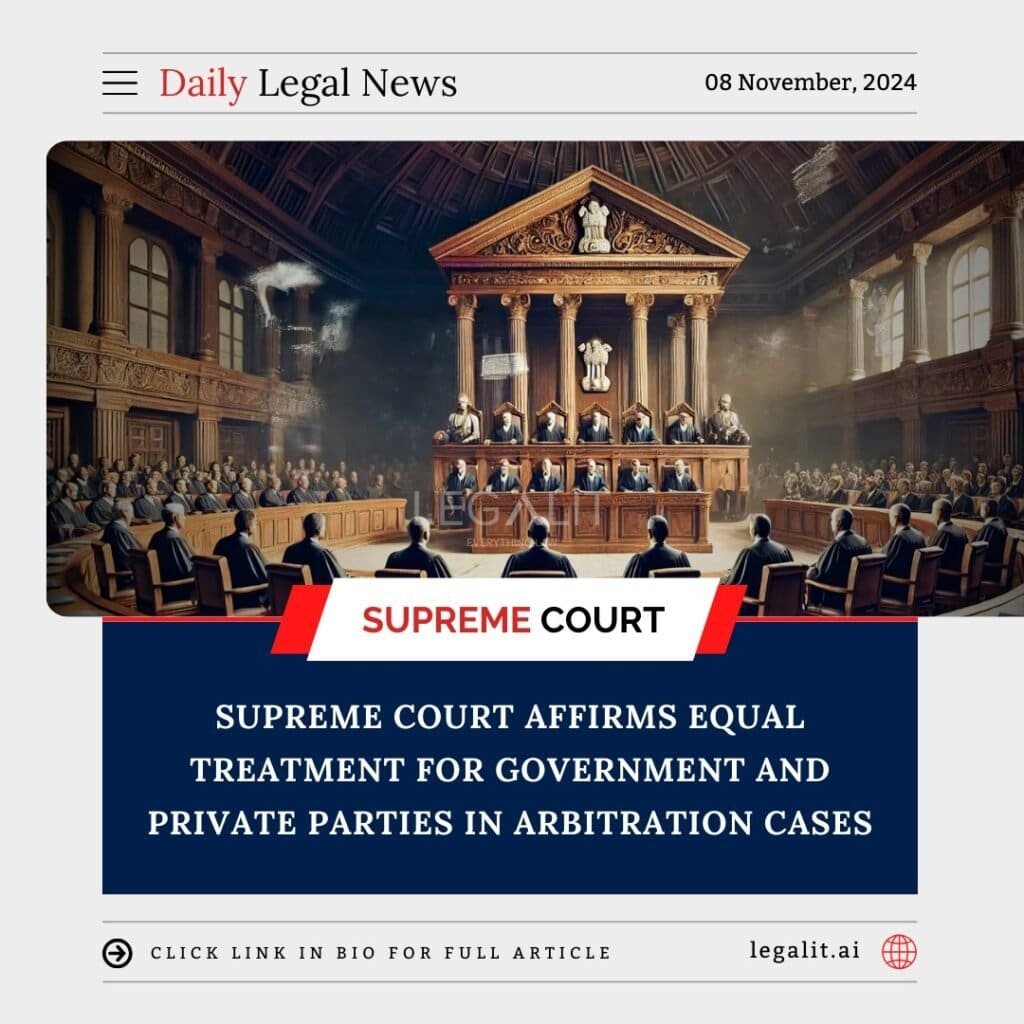
The Supreme Court of India recently held that courts should not differentiate between government entities and private parties in arbitration disputes. This decision emphasizes that both types of parties should be treated equally under arbitration law, reinforcing a consistent approach in adjudicating contractual and arbitration issues.
Background:
The ruling came in response to disputes involving government bodies and private entities in arbitration matters, where government parties were often perceived to have preferential treatment. Historically, courts have sometimes granted leniency or additional considerations to government bodies, which, according to the Supreme Court, undermines the fairness of arbitration.
Court’s Rationale:
The Court underscored that the Arbitration and Conciliation Act is intended to provide a uniform framework that applies equally to all parties, irrespective of their nature or status. Discriminating between government and private entities in arbitration cases contradicts the spirit of the Act, which aims to foster a neutral, unbiased dispute resolution environment. This ruling aims to uphold impartiality and foster greater confidence in the arbitration process for all parties.
Existing Measures:
In India, the Arbitration and Conciliation Act was established to streamline dispute resolution, minimize court intervention, and provide an efficient, fair mechanism for both government and private entities. The Supreme Court’s decision reinforces this intention by reiterating that any preferential treatment disrupts the process’s efficacy and neutrality.
Conclusion:
This ruling by the Supreme Court highlights the need for consistency and fairness in arbitration proceedings, urging lower courts to apply the law equally to government and private parties. This move is expected to encourage transparency and bolster trust in India’s arbitration framework, reinforcing the principle that no party, government or private, should have undue advantage in arbitration disputes.